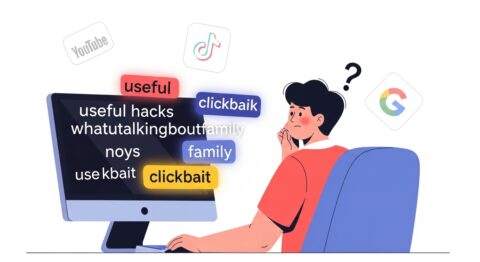Have you ever heard the term “P13X13T”? It sounds like something big and important, right? Maybe a new tech gadget or a secret code that will change your life. You might see it pop up in online articles or ads, promising amazing things. But here’s the truth: P13X13T is not real. It’s a made-up word, a buzzword designed to trick you. In this article, we will look at what P13X13T really is – or rather, what it isn’t. We will keep things simple, use easy words, and explain everything step by step.
Why should you care? In today’s world, the internet is full of fake words like this. They waste your time and can even make you spend money on nothing. By the end of this article, you will know how to spot these tricks and why you should ignore P13X13T. This is based on real facts from trusted sources. No guesses, just clear info. Let’s dive in.
What Is P13X13T Supposed to Be?
At first glance, P13X13T looks like a code from the future. Some websites say it’s a “revolutionary tech solution.” They claim it uses smart algorithms to make your life better. Others call it a “mysterious digital phenomenon.” They say it could be an AI label or a creative project that shapes the online world.
For example, one site talks about P13X13T as a way to merge function with beauty in tech. It promises fast data processing and strong security. Another site says it’s like a meme that spreads on its own in the digital world. Sounds exciting, doesn’t it? But when you dig deeper, the story falls apart.
These claims come from places like Vents Magazine, Winkbuz.com, Agdesign99.co.uk, and Headlineman.co.uk. They use big words like “futuristic alphanumeric code” and “shaping the digital world.” But there are no real examples. No companies use it. No experts talk about it in books or big conferences. It’s all smoke and no fire.
Think of it like this: If P13X13T was real and important, you would hear about it from places like BBC, Wired, or TechCrunch. But you don’t. That’s your first clue.
The Origins of P13X13T: A Quick History
So, where did this word come from? It’s hard to say exactly because it’s so vague. The first mentions seem to pop up around 2013 in old code libraries. Some people found it as a comment in computer files about encryption or digital rights. But even those are rare and not connected.
Later, in 2018, it showed up in a bad way. A teenager in the UK sent fake terror threats to schools. The emails were signed “from your team P13X13T.” Police called it a hoax. This links P13X13T to something scary, not smart tech.
Then, in ransomware attacks like Jigsaw and Apophis, hackers used “Maker: P13X13T” in their notes. Ransomware locks your files and asks for money to unlock them. Again, not a good sign. These are the main real uses – pranks and crimes. No tech breakthroughs.
In 2025, a few blogs started hyping it up. Sites like Paytimes.co.uk call it an “enigma” with no clear meaning. Applepodcastconnect.com says it’s a “game-changer,” but without proof. It’s like someone invented a story to get clicks on their website.
No patents, no research papers, no big companies behind it. If you search tech databases like arXiv or Google Patents, nothing comes up. That’s not how real tech starts.
Why Is P13X13T Everywhere? The Role of SEO and Content Mills

Now, you might wonder: If it’s fake, why do I keep seeing it? The answer is simple: money and search engines. This is where SEO – or Search Engine Optimization – comes in. SEO is how websites try to show up first on Google.
Some people write articles just to rank high for weird words. They call these “content mills.” These are factories of fake info. Writers get paid a little to make long posts full of buzzwords. P13X13T fits perfectly because no one knows what it means. They can say anything.
For instance, Winkbuz.com has a post on “the meaning, uses & digital future of p13x13t.” It sounds deep, but it’s empty. No facts, just fluffy words. Agdesign99.co.uk says it might be a “testing code” in tech. Again, no details.
These sites want your clicks. When you visit, they make ad money from Google or sponsors. It’s a trick to fool search engines. Google tries to stop it, but it’s hard. That’s why you see P13X13T in search results, even though it’s nonsense.
In real tech, words like “AI” or “blockchain” have clear definitions from experts. P13X13T doesn’t. It’s a red flag for bad SEO.
Breaking Down the Hype: Common Claims About P13X13T
Let’s look at what these sites promise. They say P13X13T can do all this:
- Revolutionize technology: Merge function and beauty, with intuitive interfaces.
- Boost security: Protect your data better than anything else.
- Work in many fields: Help in education, health, and fun stuff like games.
- Evolve like a meme: Spread and change on its own, like digital life.
Sounds great! But let’s check each one.
First, revolutionizing tech. Real examples? None. Compare it to something real like ChatGPT. That’s from OpenAI, with millions of users and papers explaining how it works. P13X13T has zero.
Second, security. Hackers used it in ransomware notes. That’s the opposite of safe. Real security tools like firewalls from Cisco have tests and reviews. P13X13T has jokes and threats.
Third, many fields. No stories of schools or doctors using it. Real tools like Google Classroom have user reviews and stats. P13X13T? Just vague promises.
Fourth, evolving meme. Memes like “Distracted Boyfriend” spread because people share them. P13X13T doesn’t. A quick search on X (formerly Twitter) shows almost nothing – just ads for printers or old posts. No viral buzz.
These claims are like empty boxes wrapped in shiny paper. Pretty, but useless inside.
The Dangers of Falling for Buzzwords Like P13X13T
Ignoring P13X13T isn’t just smart – it’s safe. Here’s why these fake words can hurt you.
First, wasted time. You read an article, get excited, then search more. Hours gone, nothing gained. In a busy world, time is money.
Second, scams. Some sites might sell “P13X13T courses” or “tools.” You pay, get junk. Remember the 2018 school threats? That fear was real for parents, even if the threat was fake.
Third, misinformation. If you share it, you spread lies. In tech, wrong info can lead to bad choices, like buying fake software that has viruses.
Fourth, trust issues. When buzzwords flood your feed, it’s hard to spot real news. This makes you doubt everything, even good stuff like climate reports or health tips.
Real harm happened with Jigsaw ransomware. Victims lost files and paid money because of fear. P13X13T was part of that note. Not fun.
How to Spot Misleading Buzzwords: A Simple Guide
You don’t need to be a tech expert to avoid traps like P13X13T. Here are easy steps. Use them next time you see a fancy word.
Step 1: Check the Source
Ask: Who wrote this? Is it from a big name like The New York Times or a random blog? Good sources have authors with real jobs, like “Dr. Jane Smith, AI Professor.”
For P13X13T, sources are unknown writers on ad-heavy sites. Red flag.
Step 2: Look for Proof
Real tech has examples. Videos, user stories, or numbers like “1 million downloads.” P13X13T? Zero proof.
Step 3: Search Smart
Type the word + “scam” or “fake” on Google. Or check Snopes.com for myths. For P13X13T, searches show it’s linked to hoaxes, not heroes.
Step 4: See What Experts Say
Go to Reddit’s r/technology or Stack Overflow. Real terms get discussed. P13X13T? Crickets.
Step 5: Trust Your Gut
If it sounds too good – like “change the world overnight” – it probably is. Real change takes time.
Practice this, and you’ll save energy for real learning.
Real Tech Terms You Should Know Instead
Don’t feel bad ignoring P13X13T. Focus on words that matter. Here are five easy ones, explained simply.
1. AI (Artificial Intelligence)
This is real tech that makes computers think like humans. Examples: Siri on your phone or Netflix recommendations. It’s from companies like Google, with clear rules.
2. Blockchain
A safe way to record info, like digital money (Bitcoin). No buzz, just banks and governments using it.
3. Cloud Computing
Storing files online instead of on your hard drive. Think Google Drive. It’s everywhere and saves space.
4. IoT (Internet of Things)
Smart home stuff, like fridges that order milk. Real products from Samsung.
5. VR (Virtual Reality)
Headsets that take you to new worlds, like Oculus for games. Fun and growing.
These have books, classes, and jobs tied to them. Learn one, and you’ll feel smarter than chasing P13X13T.
Why Buzzwords Thrive in 2025: The Bigger Picture
In 2025, the internet is faster, but trust is lower. Social media pushes quick hits. Algorithms reward shiny titles like “P13X13T Secrets Revealed!”
Content mills make thousands of posts a day. AI tools even write them now, spitting out fake words for SEO. It’s a cycle: More posts mean higher ranks, more money, more fakes.
But good news: Tools like Google’s updates fight back. They downrank thin content. Readers like you can help by sharing real info.
Experts from places like MIT say buzzwords hurt innovation. They distract from real problems, like fixing old computers in schools.
Conclusion: Walk Away from P13X13T and Embrace Real Knowledge
P13X13T is the perfect buzzword: mysterious, catchy, and empty. It’s not a tech breakthrough or digital magic. It’s a trick from content farms to grab your attention. We’ve seen its fake claims, shady origins, and real dangers. No credible source backs it up – just hoaxes and hype.
The best move? Ignore it. Use your time for real learning. Spot buzzwords with simple checks. Dive into proven tech like AI or blockchain. You’ll feel empowered, not tricked.
Disclaimer: This article is for information and education only. It is not promoting, selling, or advertising anything. We are not affiliated with any website, company, or product mentioned. The content is based on publicly available information and our own research. Use it at your own judgment.
Explore More
- Exposing ‘yy68kzj’: The Fake Keyword That Is Fooling People Online
- Why Random Keywords Like ‘tcintikee’ Mean the Content is Fake or Dangerous
- How to Find Elenas Website TheSoundsTour: Legitimate or Misleading?

Jared H. Furness is a well-known sports analyst and writer. He is known for his skill in player stats in sports like football, basketball, and baseball. Jared has a sharp eye for detail and a passion for uncovering stories behind the numbers. He is known for writing detailed, SEO-friendly articles. They attract both fans and professionals.
His work often appears on major platforms. It offers detailed breakdowns of player performances, game highlights, and strategic insights. Jared makes complex statistics easy to understand and engaging. His articles, like the Boston College Eagles vs. UVA game analysis and the Arizona Diamondbacks vs. Miami Marlins match, show his talent for mixing data analysis with engaging stories.
Jared is known for producing human-written, plagiarism-free content. His pieces rank well on Google. This helps fans and analysts easily find his expert views on key matchups. Jared H. Furness raises the bar in sports stats journalism. He highlights Bobby Witt Jr.’s amazing plays and key moments in EuroLeague basketball.





